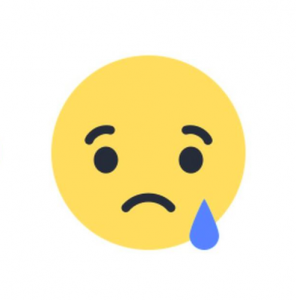March 8, 2016 • Short stories • by Emily Bell
- 115Shares
- Facebook39
- Twitter27
- LinkedIn21
- E-mail12
- Reddit0
- Buffer0
- WhatsApp16
Something really dramatic is happening to our media landscape, the public sphere, and our journalism industry, almost without us noticing and certainly without the level of public examination and debate it deserves. Our news ecosystem has changed more dramatically in the past five years, than perhaps at any time in the past five hundred. We are seeing huge leaps in technical capability — virtual reality, live video, artificially intelligent news bots, instant messaging and chat apps — and massive changes in control, and finance, putting the future of our publishing ecosystem into the hands of a few, who now control the destiny of many.
Social media hasn’t just swallowed journalism, it has swallowed everything.
It has swallowed political campaigns, banking systems, personal histories, the leisure industry, retail, even government and security. The phone in our pocket is our portal to the world. I think in many ways this heralds enormously exciting opportunities for education, information and connection, but it brings with it a host of contingent existential risks.
Should we be accepting of those risks? Do we adequately understand what they are? Are we working hard enough to interrogate new systems of power which have the scale to challenge governments, but are unaccountable except to the markets, and intentionally opaque.
I want to examine how journalism is changed by the power of the Internet and specifically social networks.
Let’s start with a topical story.
It has been a good week for the public image of journalism. Spotlight, the fictionalised account of how the Boston Globe investigated child abuse allegations in the Catholic Church in 2002 and 2003, just won the Oscar for best picture.
Spotlight is a love letter to investigative journalism, and it has the distinct advantage of being mostly true. However, other things were going on at the time at the Boston Globe that tell a different story about journalism. A decade before uncovering the abuse scandal, the Globe was bought by The New York Times for over $1 billion. In 2013, a decade AFTER the Globe had picked up a Pulitzer Prize for the story, it was sold again, this time for $70m by the Times to John Henry, the owner of the Red Sox and Liverpool FC.
So, over twenty years, a hundred year old news organisation lost over 90 per cent of its value, despite scaling the pinnacle of both excellence and importance in journalistic achievement. In September 2002, just a couple of weeks after the Spotlight team had printed the first serious allegations of child abuse levelled at priests, Google News launched.
In fact in the postscript to Spotlight, we are pointed to the paradox of the effect the web had on journalism: the stories reached further sooner, encouraging more investigation and disclosure around the world. The Internet essentially enabled the Globe’s investigation to become international. Yet, somewhere off camera in 2003, the publishers of the Globe’s journalism were wringing their hands over the uncertainty of the underlying business model.
The Boston Globe is not alone in this either. The Washington Post, where Marty Baron — the Liev Schrieber character in Spotlight — is now editor was also sold in 2013 — to Amazon founder and entrepreneur Jeff Bezos.
The great publishing families of America, the Sulzbergers who own the New York Times, and the Grahams who owned the Post, simply could not fund the transition of two august news brands into a digital future. Here in the UK we know what this feels like. The Independent ceases to print this month, and over the past ten years 300 local print titles have disappeared.
The Internet and the social web enable journalists to do powerful work, whilst at the same time contributing towards making publishing journalism an uneconomic venture.
What has happened to journalism in the past five years through the impact of social media, has been as big an upheaval as what happened in the previous fifteen, when we thought there could be no greater change than the arrival of the widely available web.
Two significant things have already happened which we have not paid enough attention to:
Firstly, news publishers have lost control over distribution.
It has moved away to social media and platform companies that publishers could not have built even had they wanted to. It is filtered through algorithms and platforms which are opaque and unpredictable. The news business has been embracing this, and ‘digital native’ entrants such as BuzzFeed, Vox, and Fusion have built their presence on the premise that they are working within this system, not against it.
Secondly, the inevitable outcome of this is the increase in power of social media companies.
The largest of the platform and social media companies, Google, Apple, Facebook, Amazon, and even second order companies such as Twitter, Snapchat and emerging messaging app companies, have become extremely powerful in terms of controlling who publishes what to whom, and how that publication is monetised.
There is a far greater concentration of power in this respect, than there ever has been in the past. Networks favour economies of scale, so our careful curation of plurality in media markets such as the UK, disappears at a stroke, and the market dynamics and anti-trust laws the Americans rely on to sort out such anomalies are failing.
The mobile revolution is behind much of this.
Because of the revolution in mobile, the amount of time we spend online, the number of things we do online, and the attention we spend on platforms has exploded. In the UK, the amount of time we spend online has doubled in a decade, up to 20 hours a week, up from 10 hours in 2005. At its peak we watched 24 hours a week of television, when there was little or no other visual electronic entertainment.
Two years ago the time we spent looking at our phones, and the time we spent on desktop browsers in Britain, was roughly 50/50, two years later, it is 60/40 in favour of mobile. This is really significant, as the design of our phones, and their capabilities (thank you Apple), favour apps, which foster different behaviour . Google did recent research through its Android platform that showed whilst we might have an average of 25 apps on our phones, the usual power laws apply, and we only use four or five of those apps EVERY day, and of those apps we use every day, the most significant chunk of that time is spent in a social media app. And at the moment the reach of Facebook is far greater than any other social platform.
In America this is even more pronounced than here.
The majority of US adults are Facebook users, and the majority of those users regularly get some kind of news from Facebook, which according to Pew Research Center data means that around 40 percent of US adults overall consider Facebook a source of news.
As the time spent within apps increases, we see new paths emerging for news delivery both within social apps and sometimes from external sources. Every morning, for instance, at the moment, a news bot sends links through my Facebook Messenger account which I respond to. Financial site Quartz has made a news app which apes a messaging app. In this respect the future is already here. Facebook, which owns WhatsApp and Messenger, has a significant stake in this too.
To recap:
1.People are increasingly using their smartphones for everything
2. It is mostly through apps, and in particular social and messaging apps, such as Facebook, WhatsApp, Snapchat and Twitter.
3. The competition to be one of those apps is intense. Competitive advantage for platforms relies on being able to keep your users within an app. The more your users are within your app, the more you know about them, the more that information can then be used to sell advertising, the higher your revenues.
Journalism and the delivery of news has become an important part of this battle for attention on mobile, people are curious about what is going on in the world right now, the sports scores, the weather, what their friends have been doing and how Donald Trump fared on Super Tuesday.
The competition for attention is fierce. The ‘four horsemen of the apocalypse’, Google, Facebook, Apple and Amazon (five if you add in Microsoft), are engaged in a prolonged and torrid war over whose technologies, platforms and even ideologies will win. It is as fierce as newspaper rivalries in the 60s and network television in the 70s, but with much more at stake.
In the last year journalists and news publishers have therefore unexpectedly found themselves the beneficiaries of this conflict.
For the full speech click here
This is an extract from a public lecture given by Emily Bell, Humanitas Visiting Professor in Media, 2015 – 2016 at the Centre for Research in the Arts, Social Sciences and Humanities, Cambridge University.
- 115Shares
- Facebook39
- Twitter27
- LinkedIn21
- E-mail12
- Reddit0
- Buffer0
- WhatsApp16
Tags: Columbia Journalism Review, digital news, Emily Bell, Facebook, Google, instant articles, TOW Center for Digital Journalism














































